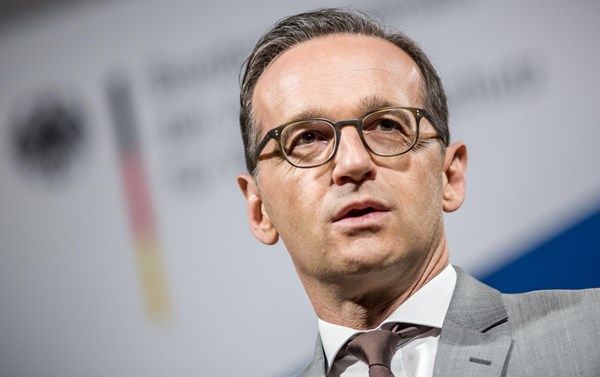German Foreign Minister to fly to Moscow and Kyiv for talks
On Friday 18 January, German Foreign Minister Heiko Maas will travel to Moscow for talks with his Russian counterpart Sergey Lavrov, and then to Kyiv to meet with Ukrainian Foreign Minister Pavlo Klimkin, Deutsche Welle reports.
In Kyiv, the ministers will discuss the situation in the Donbas and the progress of reforms in Ukraine. No other details of Maas’s visit to Ukraine were given.
In Moscow, the central topic of the negotiations will be the future of the Intermediate-Range Nuclear Forces (INF) Treaty, which was signed by the US and the USSR in 1987.
“Time is of the essence. Soon the 60-day American ultimatum will expire: if in this time Russia does not return to compliance with the INF Treaty, the US will withdraw from it,” DW writes.
On 16 January, the Pentagon announced that the six-month denunciation procedure will start on 2 February. Germany, like the other NATO members, also believes that Russia is violating the treaty. However, Germany is particularly interested in maintaining the treaty.
“Eliminating an entire class of nuclear weapons – missiles with a range between 500 and 5500 km – significantly increased Germans’ feeling of safety. They and other Europeans got a chance to still survive even if the US and the USSR (or Russia) exchanged intercontinental ballistic missiles. A second deployment of intermediate and short range missiles in Europe will once again deprive them of such a chance,” DW writes.
Karl-Heinz Kamp, Director of the German Federal Academy for Security Policy, observed that the breakthroughs in the US-Soviet negotiations were achieved primarily in meetings between their leaders. Kamp believes that US President Donald Trump could make progress in what would appear to be a diplomatic impasse.
“There is probably no need to convince Vladimir Putin to meet with the US president. Berlin’s opportunities to influence Trump are, to put it mildly, limited. Here, even the collective efforts of the US’s European partners in NATO are unlikely to help,” DW writes.
On October 20 last year, Trump announced that the US intends to withdraw from the INF Treaty, claiming that Russia is not complying with the agreement. Russia in turn accused the US of breaking the missile treaty and attempting to create a unipolar world.
The US believes that the 9M729 ground-based cruise missile which Russia has developed for Iskander systems is in breach of the treaty’s terms. Washington and NATO claim that its range falls within the ranges prohibited by the treaty, although Moscow denies this. In response, Russia has repeatedly asserted that the US is violating the treaty through its anti-missile defense systems in Romania, for example.
The INF Treaty was signed in 1987 and prohibits both the US and Russia from having ground-based ballistic missiles and cruise missiles with a range between 500 and 5,500 km.
